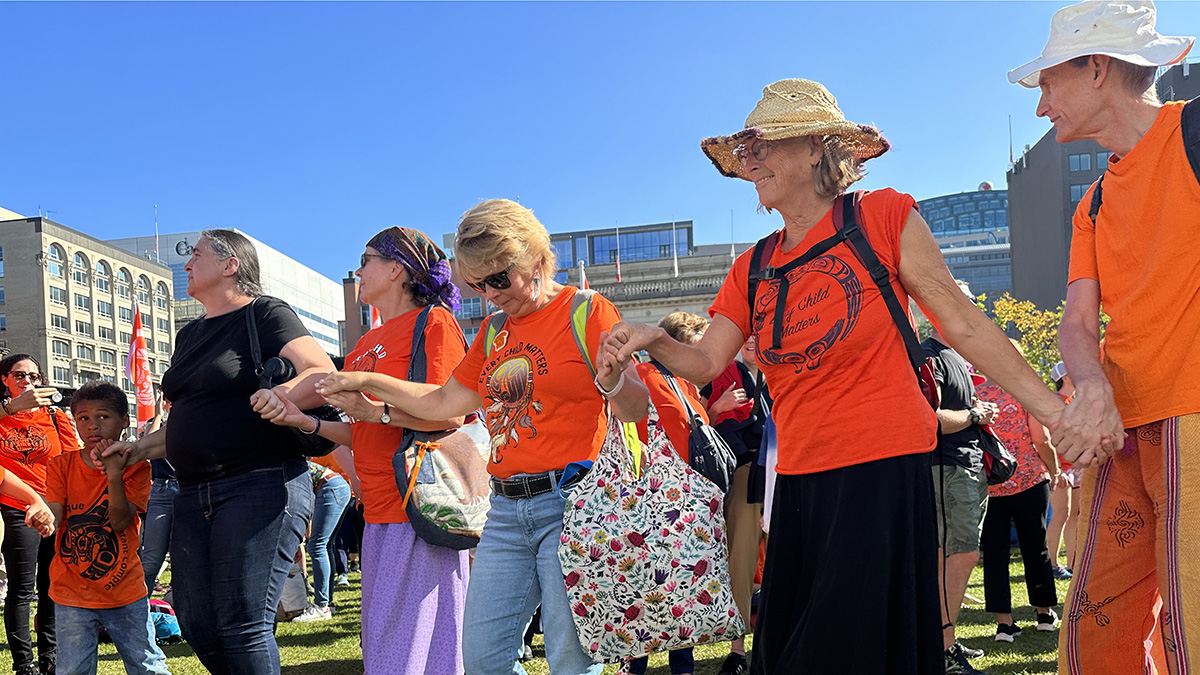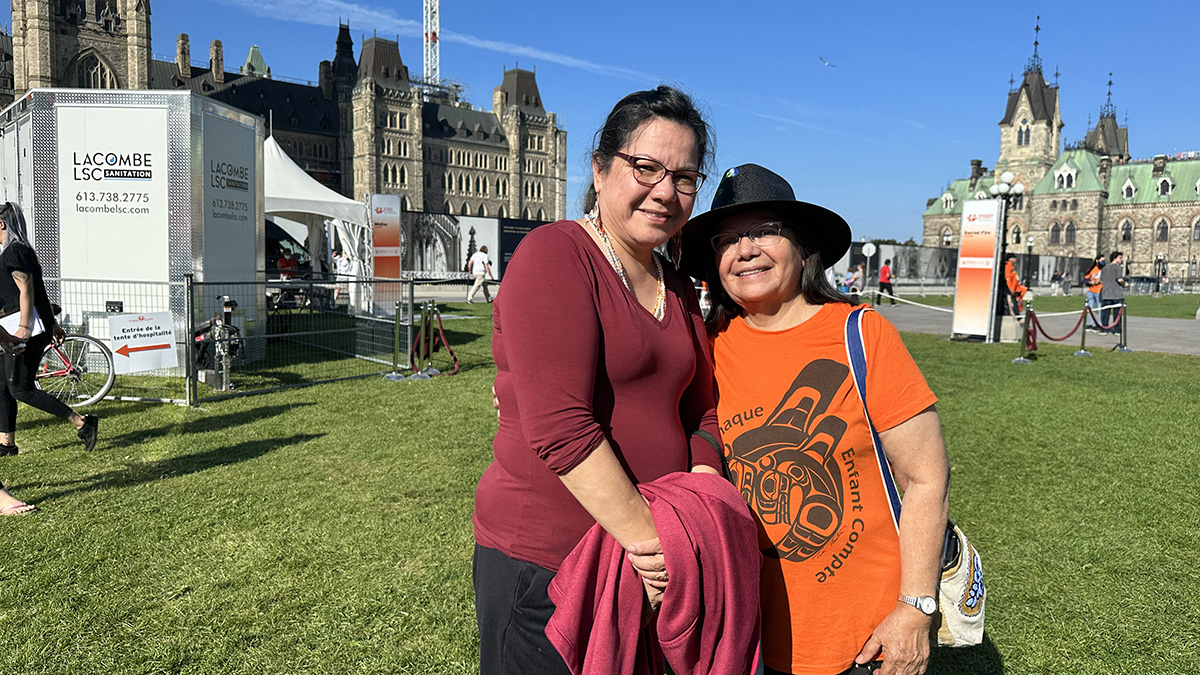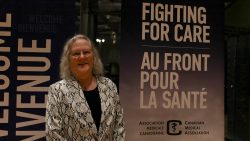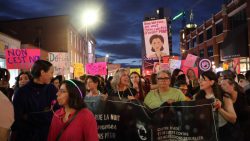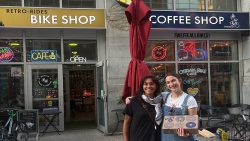Hundreds made their way to Parliament Hill in recognition of the third annual National Day of Truth and Reconciliation in Ottawa on Sept. 30.
Orange shirts reading “Every Child Matters” covered the area during the Remembering the Children ceremony, which served as a tribute to the children lost to the residential school system and honour survivors, their families, and the communities still affected by lasting trauma.
Marie and Laura Mapachée, two sisters and Indigenous people of the Abitibiwinni First Nation from the Pikogan reservation in Quebec, drove more than five hours to attend the event.
Laura, who only speaks French, still vividly remembers the experience of her six years at residential school. her voice is soft and filled with emotion.
“We went through so much physical and verbal abuse,” said Laura in a soft voice filled with emotion, her sister Marie translating.
The only language she knew was banned from being spoken, her people’s traditions were forbidden, and any form of contact with her family was severed.
Laura shared a story of a time she had worn through her shoes at the school.
“The nun gave me two left shoes. I had to go for the rest of the school year with these shoes. That is how I learned the feeling of humiliation,” said Laura, adding that the trauma never left.
We lost a lot of education because of the violence we went through with the priest, and once it was over, I was completely lost,” she said.
When she returned home, “everything was different.”
“It affected my father very badly when his children were taken away. My parents separated, and he started drinking very heavily.”
Laura’s younger sister, Marie, said she was deeply affected when her sister was taken away.
“As a little girl, I never had the chance to grow with her or my brother—they pulled me away to a foster home where the white people called us savages. They treated me like an animal, and I didn’t understand why they treat us like this,” said Marie.
“I didn’t even know I had sisters or brothers.”
The third annual Day of Truth and Reconciliation is more than just a reminder of residential schools for the sisters. It’s a day for healing.
“Once I came out of the residential schools, I transmitted these traumas onto my children,” said Laura, adding that for the past eight years she has worked very hard on herself though prevention meetings and therapy.
“I don’t want my children and grandchildren to be affected my trauma.”
Laura is a survivor of one of the 139 residential schools that operated across Canada. More than 150,000 First Nations, Métis and Inuit children were forced to attend these church-run, government-funded schools between the 1870s and 1997.
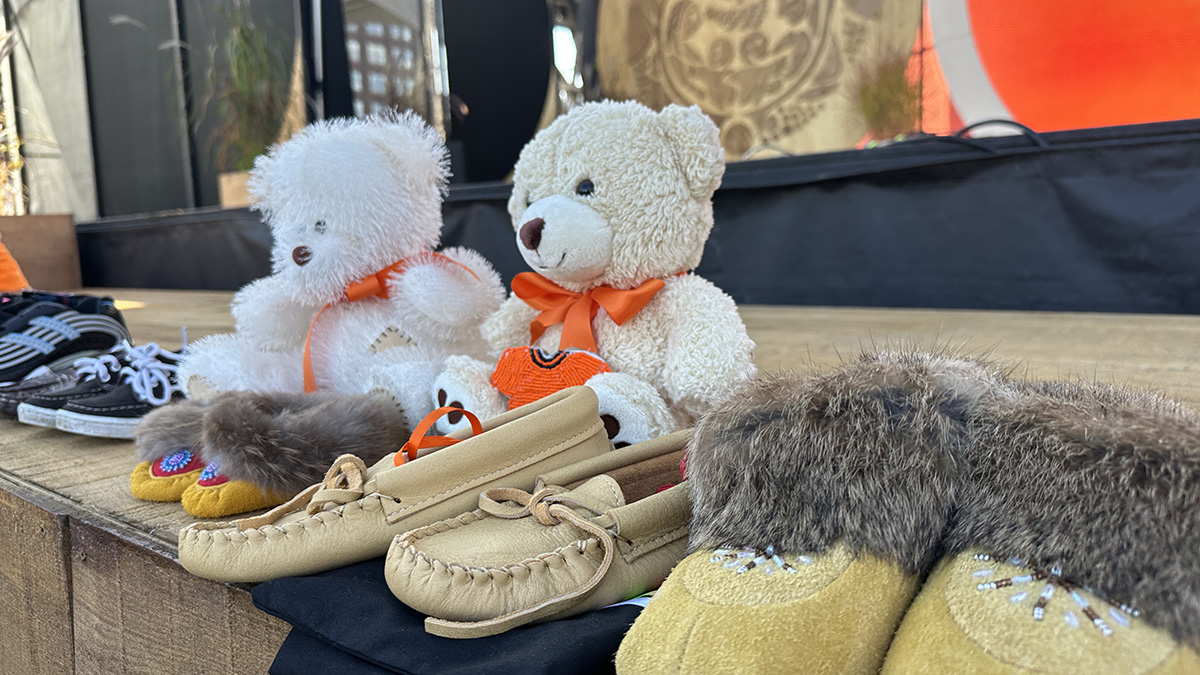
Children’s shoes and stuffed animals sit on the main stage of the event on Parliament Hill, on Sept. 30, 2023. [Photo © Annika Scurfield]
Several Indigenous musicians paid homage through their music, while various speakers, including Canada’s first Indigenous Gov. Gen. Mary Simon. They shared stories, insights and sentiments on the importance of Indigenous Identity and Reconciliation.
Simon stated in her speech that people often ask her about her perspective on reconciliation. She emphasized the issues complexities, the healing that needs to be done, and the government work required at both the community and federal levels.
“We need a more unified system of how we give the full story of Canada, especially in relation to Indigenous and first peoples of this country,” said Simon.
“I believe that today is a new day, and we don’t want this curse to go onto the next generation. We want to teach them good, and I thank the lord that the next generation will be healed,” said Marie.
